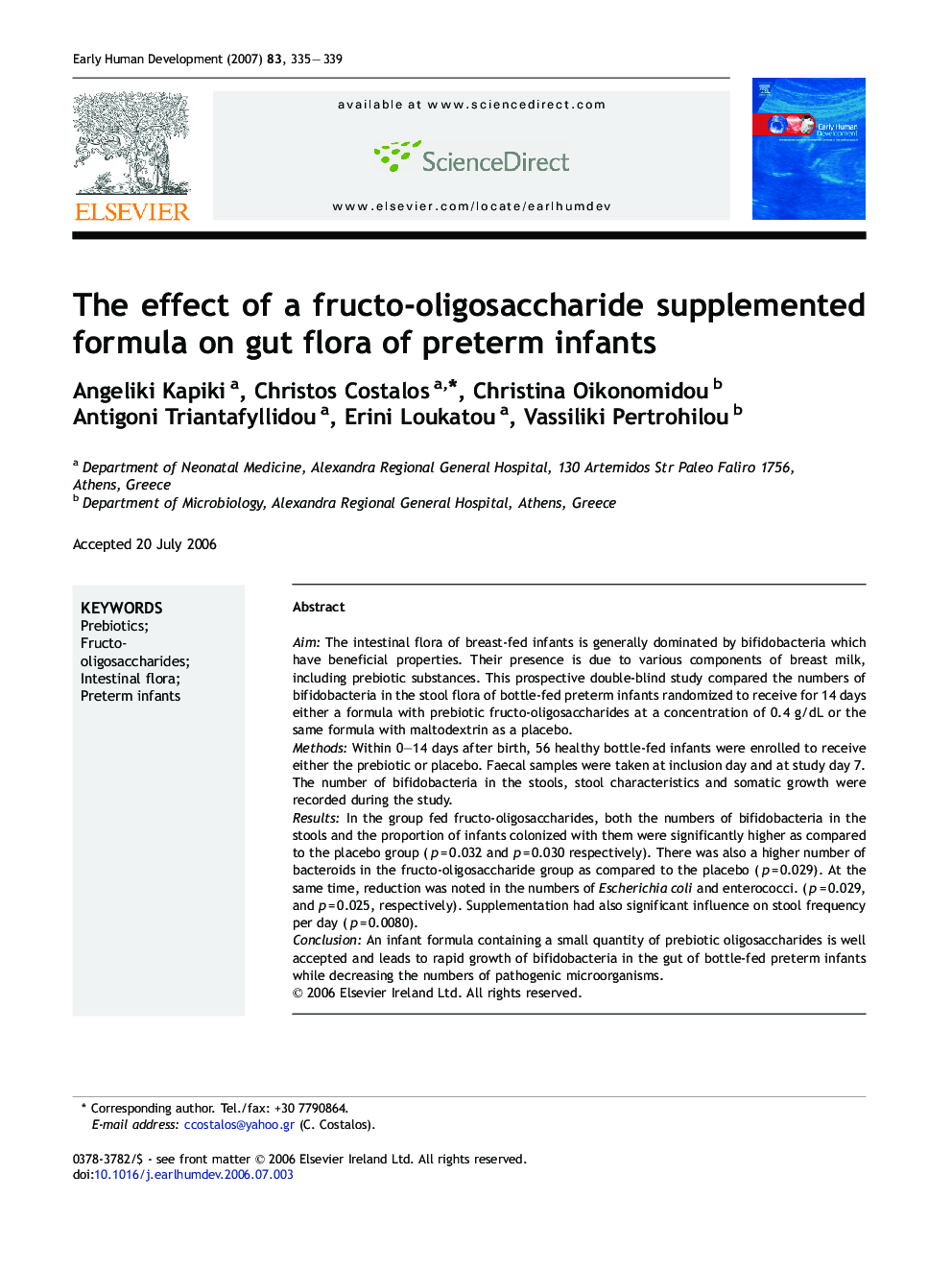| Article ID | Journal | Published Year | Pages | File Type |
|---|---|---|---|---|
| 3918344 | Early Human Development | 2007 | 5 Pages |
AimThe intestinal flora of breast-fed infants is generally dominated by bifidobacteria which have beneficial properties. Their presence is due to various components of breast milk, including prebiotic substances. This prospective double-blind study compared the numbers of bifidobacteria in the stool flora of bottle-fed preterm infants randomized to receive for 14 days either a formula with prebiotic fructo-oligosaccharides at a concentration of 0.4 g/dL or the same formula with maltodextrin as a placebo.MethodsWithin 0–14 days after birth, 56 healthy bottle-fed infants were enrolled to receive either the prebiotic or placebo. Faecal samples were taken at inclusion day and at study day 7. The number of bifidobacteria in the stools, stool characteristics and somatic growth were recorded during the study.ResultsIn the group fed fructo-oligosaccharides, both the numbers of bifidobacteria in the stools and the proportion of infants colonized with them were significantly higher as compared to the placebo group (p = 0.032 and p = 0.030 respectively). There was also a higher number of bacteroids in the fructo-oligosaccharide group as compared to the placebo (p = 0.029). At the same time, reduction was noted in the numbers of Escherichia coli and enterococci. (p = 0.029, and p = 0.025, respectively). Supplementation had also significant influence on stool frequency per day (p = 0.0080).ConclusionAn infant formula containing a small quantity of prebiotic oligosaccharides is well accepted and leads to rapid growth of bifidobacteria in the gut of bottle-fed preterm infants while decreasing the numbers of pathogenic microorganisms.
